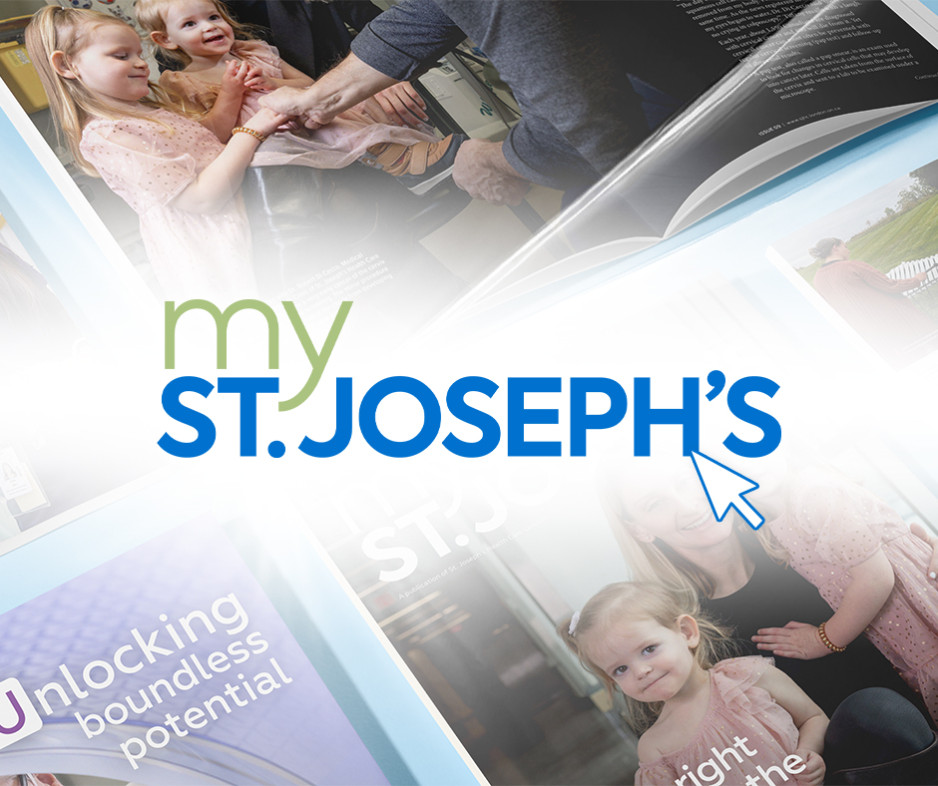No limit on hope
Lujane Al-Azem has always believed in the power of human connection. It’s why the compassionate, young Londoner chose to major in psychology. What she didn’t know was that her greatest lesson wouldn’t come from a textbook or lecture. It would come in the unexpected form of a health crisis.
Only months into her first semester at Western University, Lujane began experiencing unusual symptoms. It started with a drop in weight despite no changes to her diet, and fatigue so severe she was falling asleep in class. To make sense of her puzzling collection of symptoms, she chalked it up to a common first-year student affliction – stress.
After several more months of unrelenting symptoms and prompts from concerned family members, Lujane visited the doctor on campus. There, she learned her A1C, a blood marker that reflects blood sugar levels, was elevated for someone her age and size. Referred to the Centre for Diabetes, Endocrinology and Metabolism at St. Joseph’s Health Care London (St. Joseph’s), endocrinologist Dr. Tamara Spaic diagnosed Lujane with type 1 diabetes.
Caught early – which is rare - she started insulin very gradually. Still, the diagnosis was a blow. In an instant, Lujane felt her ability to be a whole person was taken away.
“As a Muslim woman, it’s going to impact my ability to fast,” she catastrophized. “It’s going to impact my ability to travel. It’s going to impact my ability to do daily life tasks. It’s going to impact how I take exams and if I’m able to concentrate. There’s not one thing that this diagnosis isn’t going to impact.”
The endless loop of life-altering implications running through Lujane’s mind was inescapable, until Dr. Spaic offered her another perspective.
“I remember her saying, ‘let me tell you about all the things you can do’,” Lujane recalls.
It was the sliver of hope she needed.
“It made me feel that hope is one thing I cannot be limited in.”
Lujane began to see her diagnosis as an opportunity to connect with people in a whole new way.
“You see more when you’re not seeing through one lens,” she says. “The more experiences you have – positive or negative – helps you to see more, and I believe that’s a good thing.”
In her second year of university, Lujane’s diabetes progressed and she began daily injections of insulin. In third year, she switched to a pump, a small wearable device that delivers insulin into the body. It was a game changer for the young student in managing her condition.
When the COVID-19 pandemic hit in 2020, Lujane was finishing her third year of university and starting to feel more confident in making choices, adjustments and taking control of her diabetes, with virtual support from St. Joseph’s Diabetes Education Centre. She also began to feel the pull of a new career path.
“There were little moments where I thought, maybe I’ll work in health care.”
In fall 2022, Lujane enrolled in Western’s “compressed” 19-month nursing program. She graduates this spring.
Diabetes has also launched the now 24-year-old in other new directions – creating connections and spreading the hope she was gifted. She’s a mentor with the Juvenile Diabetes Research Foundation, volunteers with the Sun Life Walk to Cure Diabetes, and lobbies the government for access to diabetes medications and supplies for those who can’t afford them. And in 2023, she became one of St. Joseph’s youngest care partners, using her story and voice to make meaningful change for patients within St. Joseph’s and the broader health care system.
While the future nurse has yet to decide what’s next professionally or personally, the future, she says, remains filled with hope.
“I’m excited to see changes in diabetes care and care for other chronic conditions. I’m also excited to connect with more people, do more lobbying and advocacy, and continue to be a care partner. Diabetes has not limited me. It has opened new doors on my journey.”





